Table of Contents
In the dynamic domain of startup software development, staying abreast of emerging trends is crucial for aligning with business goals while leveraging cutting-edge technologies. As we navigate through 2024, discerning the optimal tech stack becomes pivotal for efficiently achieving milestones and gaining a competitive edge.
In this exploration, we’ll dissect the key software trends tailored for startups, shedding light on technologies tailored for mobile and web application development. Let’s explore the startup software trends shaping the landscape in 2024.
Startup Software Trends in 2024
1. Flutter: The Silver Bullet for B2C and C2C Startups
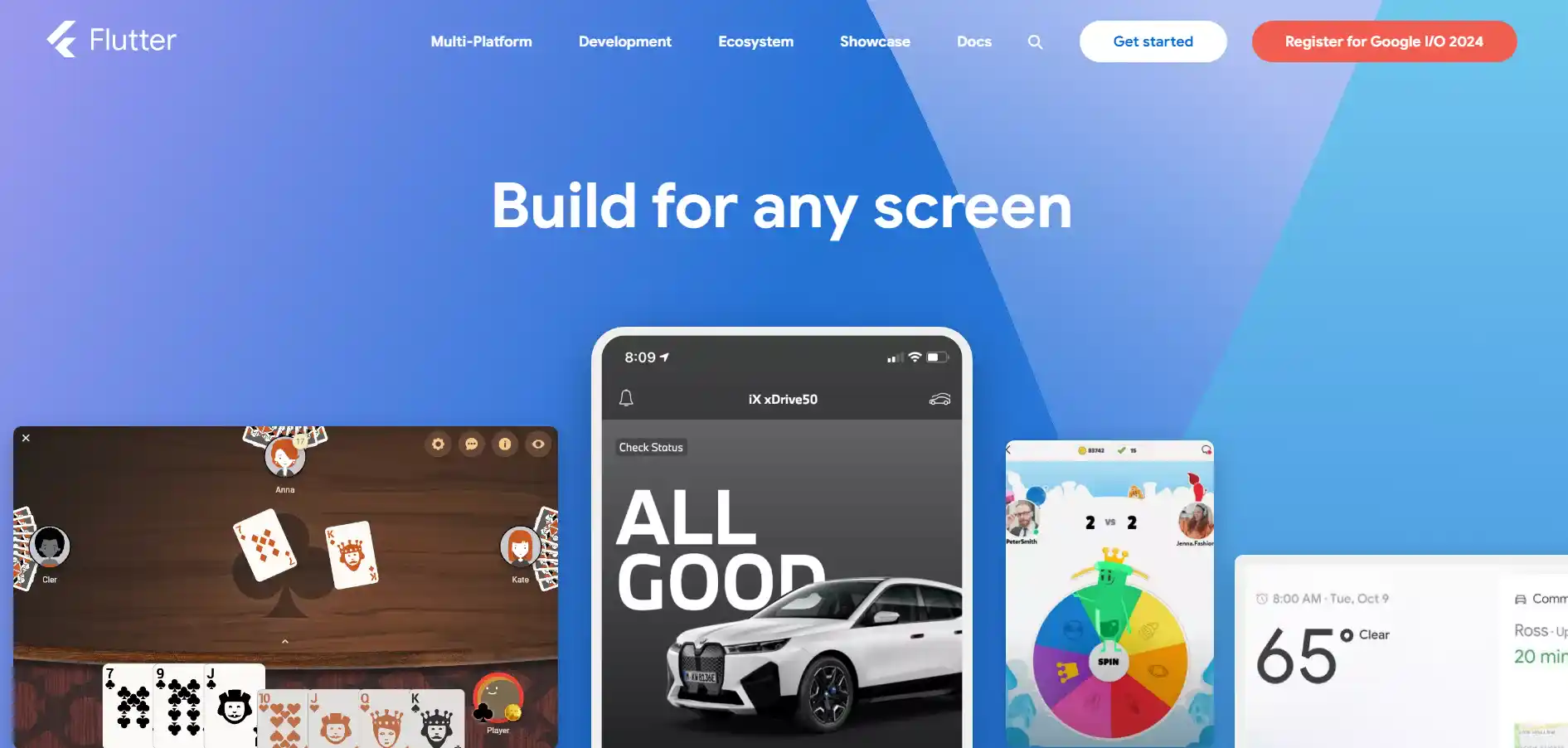
Being an open-source framework, Flutter continues to gain prominence in 2024, particularly for B2C and C2C projects where end-user experience is paramount. In the realm of startup software trends, Flutter stands out as an optimal choice for projects where the primary role belongs to the end user. Key characteristics of Flutter for such projects include:
Key Advantages:
- Multi-platform Development: Flutter enables the application of a single codebase to deploy final solutions on various platforms.
- Fast Performance: Flutter code boasts fast performance, powered by Google with a powerful rendering engine.
- High Code Shareability: More than 95% of code can be shared between platforms, surpassing alternatives like React Native and Auth0 alternatives.
Use Cases:
- Limited time for application development.
- Dynamically changing app logic.
- User-centric platforms with an emphasis on UX and customization.
- Products with sophisticated design and animations.
Flutter’s open-source nature enables analysis of its development tendencies. Recent updates include performance improvements, stable Windows support, iOS & Android updates, and transition to Material 3.
2. Ruby on Rails: Develop MVP/POC/Demo and Scale Easily
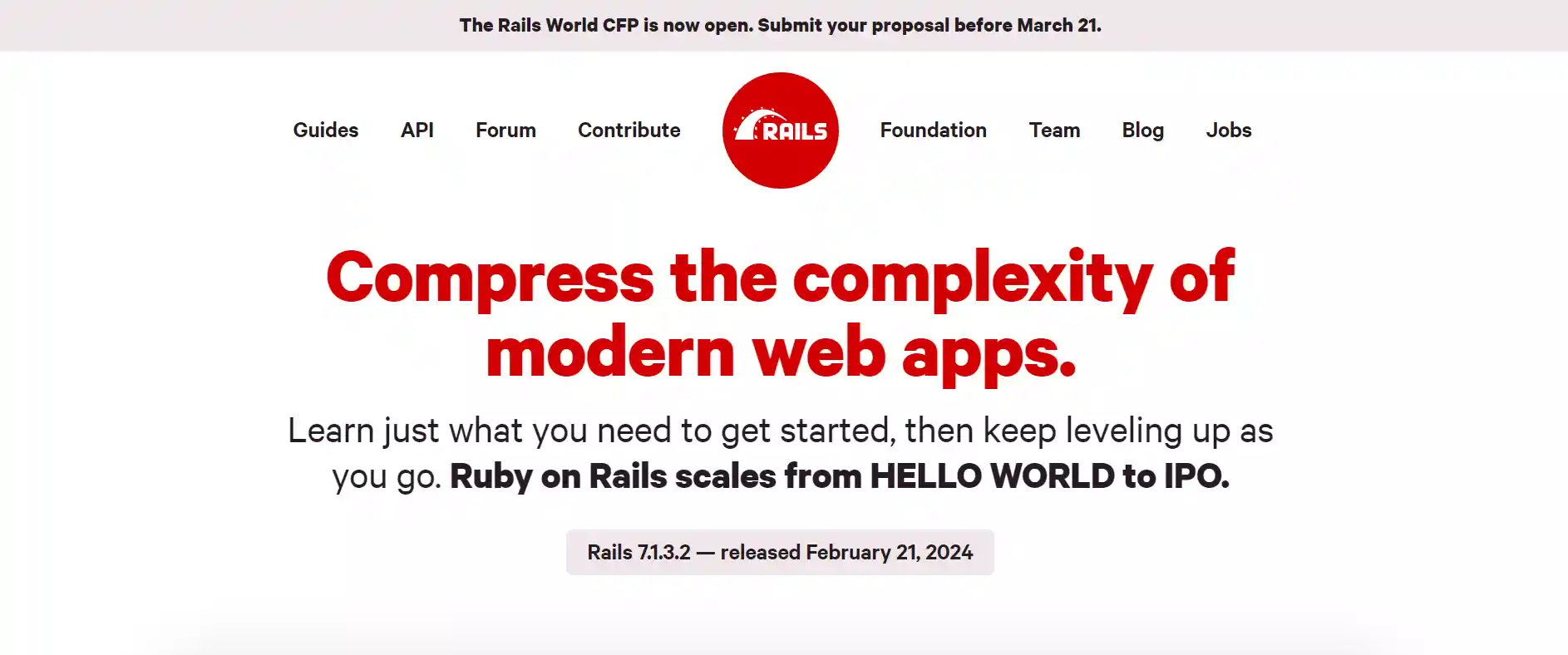
When opting for Ruby on Rails, startups can ensure that their product development stays on schedule and progresses seamlessly. Ruby on Rails is particularly well-suited for MVP development, enabling quick iterations and effortless scaling.
It stands out as an ideal technology for various applications due to its open-source nature, excellence in API development, and its ability to significantly reduce time-to-market leading to one of the most startup software trends in 2024.
Why Ruby on Rails is an Apt Choice:
- Web Application Development: Ideal for developing MVPs and Proof of Concepts, facilitating easy demonstration to investors.
- Backend Development for Mobile Apps: Simplifies backend development, streamlining the process for mobile applications.
- E-Commerce Solutions: Perfect for setting up online stores, supporting plug-in modules, and integrating customer relationship management and payment tools.
- Static Site Generators: Serves as a core technology for static site generators and templates, enabling the generation of static HTML websites.
- Automation and DevOps: Offers ease in automation and DevOps practices, contributing to streamlined operations.
- Data Processing and Web Scraping: Facilitates data processing and web scraping tasks, with Ruby assisting in data parsing, analysis, and manipulation.
Startup Software Trends:
- Focus on MVP Development: With the emphasis on rapid prototyping and validation of ideas, technologies like Ruby on Rails become indispensable for quickly turning concepts into tangible products.
- Integration with DevOps Practices: Startups increasingly adopt DevOps methodologies to enhance collaboration and automate processes, making technologies like Ruby on Rails more appealing due to their compatibility with DevOps workflows.
- Data-Driven Decision Making: As startups rely heavily on data for insights and decision-making, the capabilities of Ruby on Rails in data processing and analysis become even more valuable, aiding in extracting actionable insights from raw data.
- Scalability and Flexibility: In the fast-paced startup environment, scalability and flexibility are paramount. Ruby on Rails’ ability to scale easily and accommodate changing requirements aligns perfectly with this trend, making it a preferred choice for startups aiming for rapid growth.
Incorporating Ruby on Rails into the tech stack not only ensures efficient product development but also aligns with current startup software trends, enabling startups to stay agile and competitive in the market.
3. React Native: Developer-Centric Platform for Mobile App Startups
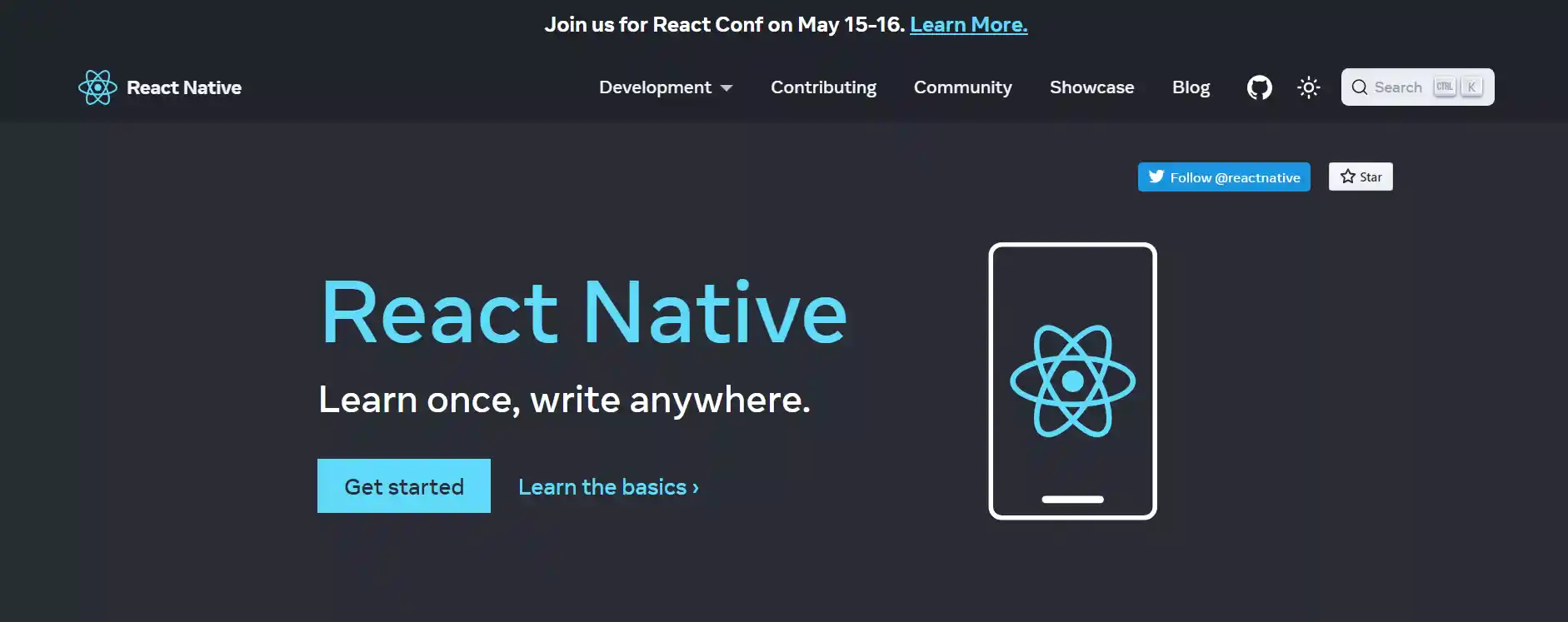
React Native emerges as a cornerstone in the startup software trends, offering a developer-centric approach to mobile application development. Here’s how it fits into the startup software trends of 2024:
- Cross-Platform Development: React Native combines React and native development elements, facilitating the creation of captivating UI interfaces for both iOS and Android platforms.
- Industry Adoption: Major players like Bloomberg, Facebook (Ads Manager), UberEats (Restaurant Dashboard), Discord, and Microsoft (OneDrive, Outlook) have embraced React Native for their mobile applications, showcasing its versatility and reliability.
- Pros and Cons: Understanding the framework’s main features and limitations is crucial. While React Native simplifies development with code reuse and familiar architecture, it may face challenges in complex designs and performance-critical applications.
Why React Native?
- MVP/PoC Solutions: Ideal for startups aiming for rapid prototyping or proof-of-concept development with simple client-server architectures.
- Team Expertise: Suited for startups relying on JavaScript engineers for app maintenance and support post-release.
- Enterprise and B2B Applications: React Native shines in scenarios where business-focused applications need to be developed efficiently.
4. PWA: Perfect Fit for Fast MVP App Launch
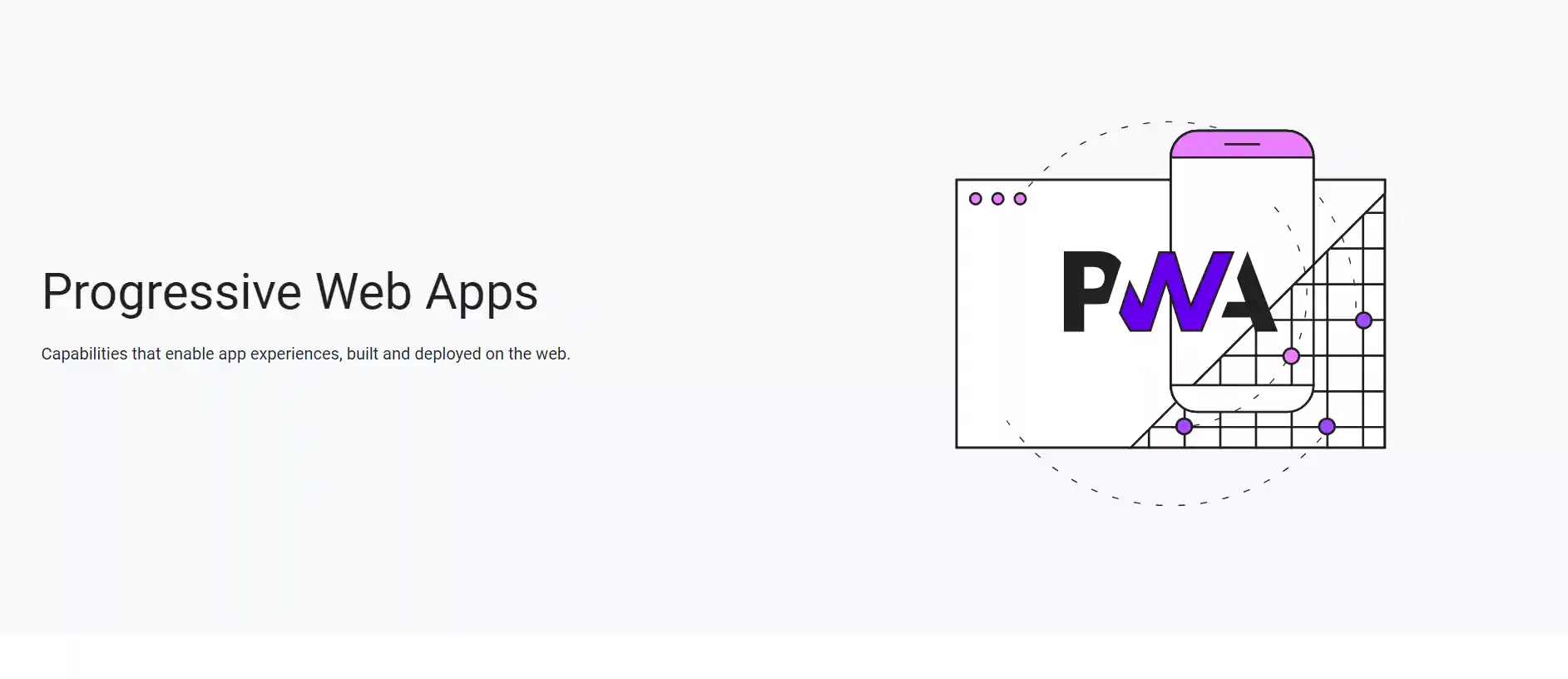
PWAs (Progressive Web Applications) are developed using specific technologies such as service workers and manifests to deliver features akin to native applications making it into one of the startup software trends in 2024.
Advantages:
- Discoverability: PWAs are as discoverable as web applications.
- Seamless User Experience: PWAs offer a user experience comparable to native apps.
- Fast MVP Launch: Ideal for startups aiming to swiftly launch MVPs with a single codebase for multi-platform deployment.
Limitations:
- Platform and Hardware Support: PWAs face limitations in platform and hardware support, exemplified by Firefox discontinuing support for PWAs on desktops.
- Restricted Hardware Access: Some functionalities of PWAs are limited due to restricted access to device hardware.
5. Headless CMS Revolution
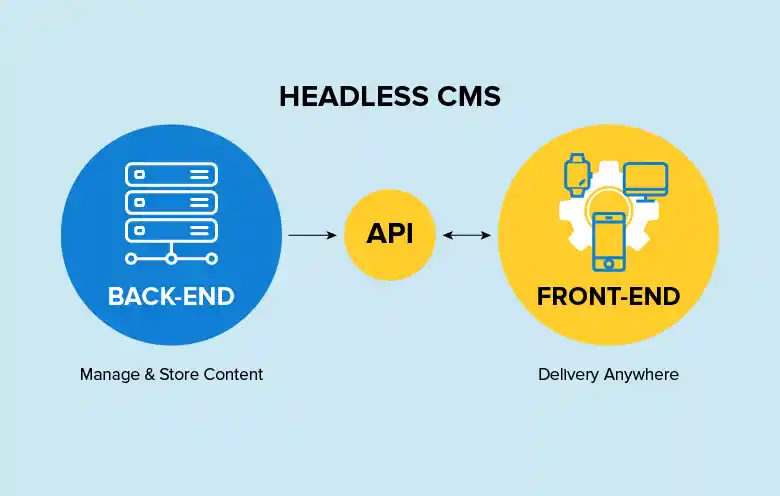
In the ever-evolving landscape of startup software trends, the emergence of headless CMS solutions is reshaping content management strategies. Here’s why startups are embracing this trend:
Scalable, Flexible, Fast, and Secure
- Scalability: Headless CMS solutions offer scalability by separating the content repository from the presentation layer, allowing startups to scale their content management systems seamlessly as their business grows.
- Flexibility: With the content decoupled from the code, startups can reuse content across multiple channels, enabling them to create consistent omnichannel experiences for their users.
- Development Speed: Headless CMS empowers developers to independently choose the most suitable tools and technologies for their projects, streamlining the development process and accelerating time-to-market for new products and features.
- Robust Security: The architecture of headless CMS solutions prioritizes security, providing startups with a high level of protection for their content and data.
- Extensive Integrations: Headless CMS platforms offer extensive integration capabilities, allowing startups to seamlessly connect with other tools and services, such as analytics platforms, e-commerce solutions, and marketing automation tools.
Market Projection
Research and Markets forecast a promising future for headless CMS, with the software market projected to reach US$ 1,628.6 million by 2027. This projection underscores the growing recognition of headless CMS as a valuable asset for startup software trends seeking agile and efficient content management solutions.
6. Firebase: Convenient Tools and Services
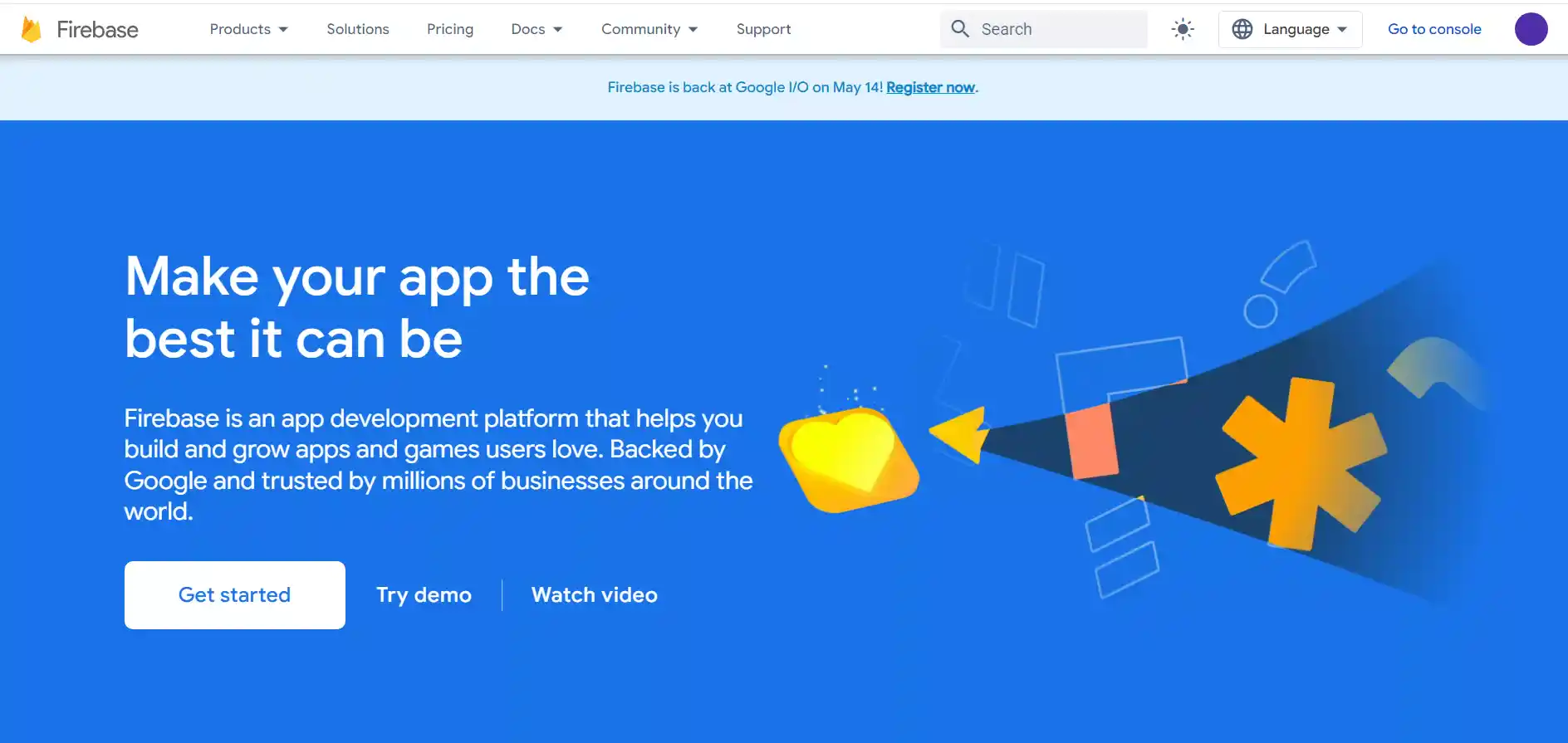
Firebase remains a staple in the startup software trends landscape, powered by Google. Teams of varying sizes continue to utilize Firebase for mobile and web application development due to its array of convenient tools and services. These include:
- Authentication: Simplified user authentication processes.
- Analytics: Comprehensive data analytics for better insights.
- Cloud Messaging: Seamless communication between clients and servers.
- Real-time Database: Instantaneous data synchronization across devices.
- Crashlytics: Effective troubleshooting and bug fixing.
- Performance Monitoring: Monitoring and optimizing app performance.
- Test Lab: Comprehensive testing environment for app quality assurance.
MVP Lite Development Approach
To fully immerse into the startup software trends landscape in 2024, the MVP Lite development approach gains traction. This approach involves utilizing Firebase and Flutter for rapid MVP (Minimum Viable Product) and PoC (Proof of Concept) development. Key features of MVP Lite include:
- Firebase and Flutter Integration: Combining Firebase’s backend capabilities with Flutter’s UI toolkit for efficient development.
- Short-Term Implementation: MVP Lite focuses on rapid feature implementation without final designs or extensive testing.
- Cost Efficiency: By developing 80% of key functionality, MVP Lite significantly reduces overall development costs, with potential savings estimated at 30–80%.
- Native Database Access: The combination of Flutter and Firebase allows native access to databases and essential functions such as authorization and push notifications.
- Out-of-the-Box Admin Panel: Integrated libraries provided by Firebase facilitate the creation of admin panels, streamlining management processes.
In the dynamic startup software trends landscape of 2024, leveraging Firebase and Flutter for MVP Lite development offers a potent combination for building scalable mobile and web solutions efficiently.
Related Articles:
Exploring Startup Software Trends in 2024
In the ever-evolving domain of startup software development, aligning with emerging trends is imperative for success. Technologies like Flutter, Ruby on Rails, React Native, PWAs, Headless CMS, and Firebase are reshaping the landscape, offering efficient solutions for rapid development, enhanced user experiences, and streamlined operations. By embracing these trends, startups can navigate through 2024 with agility, efficiency, and innovation, ensuring they remain competitive in today’s dynamic market.